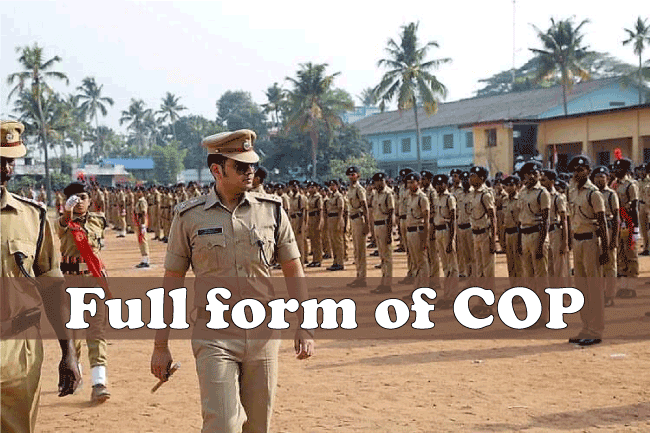What is the Full Form of COPCOP: Chief Of PoliceCOP stands for Chief of Police. The officer in control of the force is the Chief of Police. The Chief of Police, who oversees all operations for the Police Department, is the most significant employee. The most significant individual in the police force is the chief of police, who is primarily in charge of maintaining the law. 
Law and order are the responsibility of the Police Chief and Police Officer, who are both police officers. They have a responsibility to defend the populace against crime and sexual assault. They are given the power to capture, charge, and defend criminals while defending the populace. The definition of "COP" as it applies to police officers. Also known as COP, which stands for citizen on patrol, a constable on patrol, and chief of police. DutiesThe specific responsibilities of a police chief vary per nation and occasionally even within one. The likelihood that particular responsibilities may be assigned to mid-ranked officers increases with the size of a police force or agency. The acts and duties that any head of police is expected to perform are summarised in the following list.
Although there are some exceptions, police chiefs are typically sworn police officers who wear police uniforms and are granted the authority to make arrests. In all but the smallest police departments, their actual function is administrative. Media attention has been generated by the infrequent instances when police chiefs initiate arrests. Responsibilities Of The Chief Of Police
Qualifications For Chief Of Police:
Commissioner Of Police (India)
Description And BackgroundBy collaborating with the District Magistrate, the Superintendent of Police (SP) or Senior SP (SSP) traditionally upholds peace and order at the district level (DM). The Commissioner of Police (CP) system granted the CP and authorized police officers reporting to them (e.g., Special/Joint/Additional/Deputy/Assistant CP) the DM's magisterial powers. The CP system is typically a better policing method for major metropolitan areas. CommissionerateA commissioner may incorporate several neighboring districts under it. The Nizams founded the Hyderabad City Police Commissionerate in the former Hyderabad State in 1847 AD, making it one of India's oldest police Commissionerate. The British Indian government first introduced the CP system in Kolkata & Chennai in 1856, then Mumbai in 1864. Police commissionersIn India, commissioners of police are members of the IPS who are in charge of a Commissionerate's police force. They have more executive authority than a Superintendent of Police (SP) or Senior SP (SSP), who oversee the district's police force. IPS officers with the level of SP and higher may hold the position of commissioner of police (CP), subject to the approval of the relevant state government (or, in the case of Delhi, by the Government of India).
Next TopicFull Form
|
 For Videos Join Our Youtube Channel: Join Now
For Videos Join Our Youtube Channel: Join Now
Feedback
- Send your Feedback to [email protected]
Help Others, Please Share










